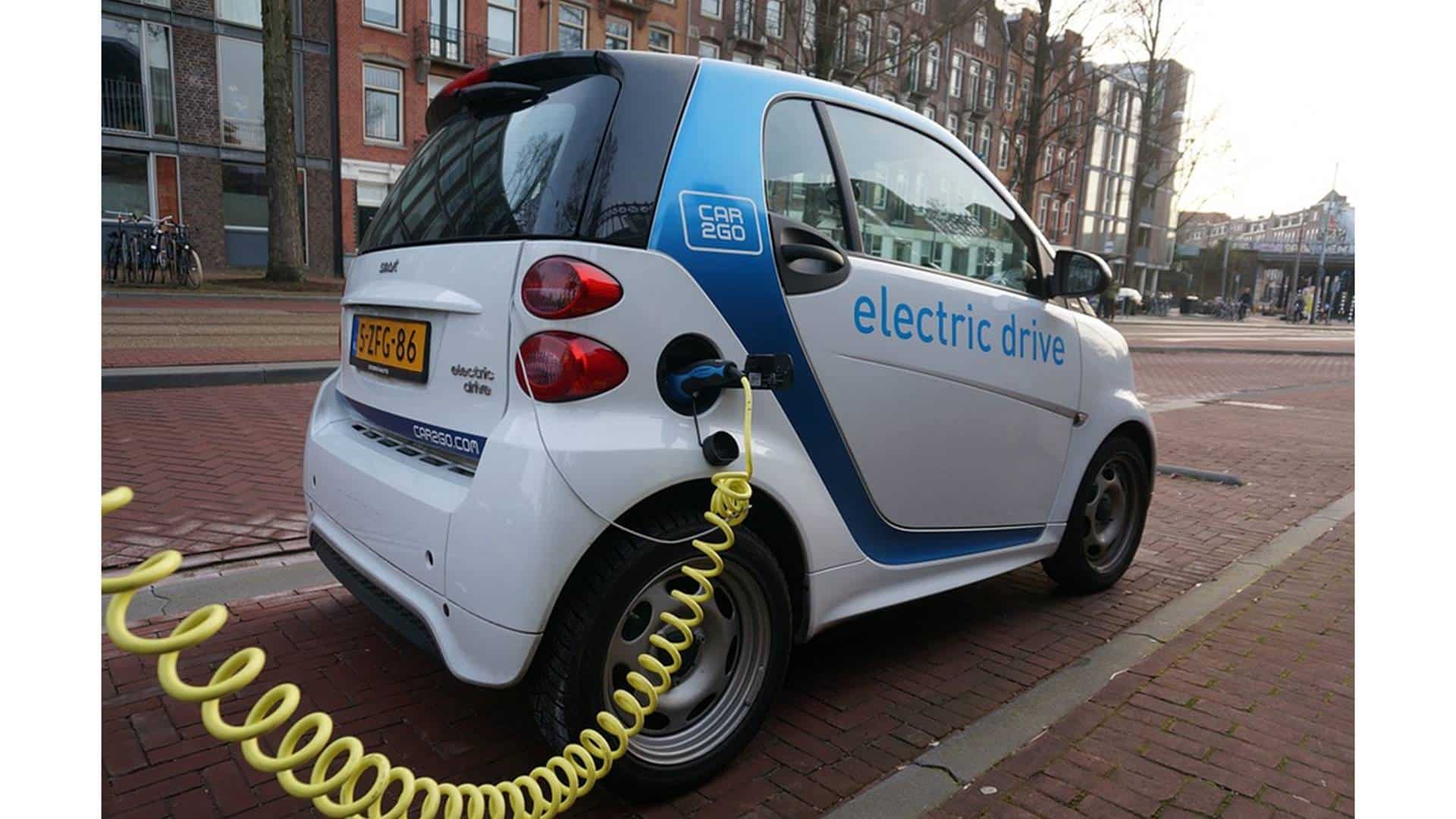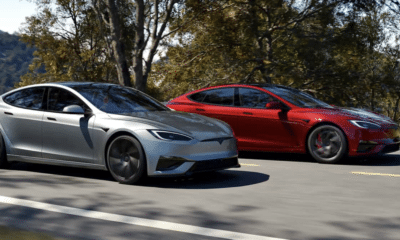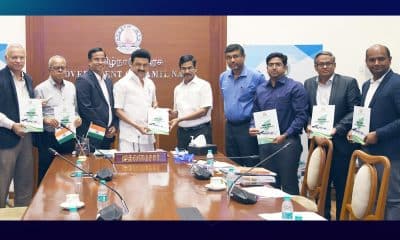Business
Here’s how EV industry reacted to union budget 2022
Electric Vehicles segment has welcomed the announcements made in union budget 2022. Presenting her fourth budget, Finance Minister Nirmala Sitharaman said Centre will introduce a new policy for battery swapping to encourage the use of electric vehicles. She also announced that the government will step up initiatives to boost EV infrastructure and EV ecosystem to achieve its broader decarbonisation goals.
She said, “The private sector will be encouraged to create sustainable and innovative business models for battery and energy as a service, improving the efficiency of the EV ecosystem.”
Here are the post-budget reactions from the EV industry
Rajiv. K Vij, Founder of Plug Mobility
There are some good announcements in the budget to promote EV’s through promoting charging infra and standardizing the battery norms for swapping and interoperability.
However the budget has missed a major challenge in EV adoption-Availability of Financing for fleets and Credit Guarantee by Government is desperately required by fleet owners who have suffered hugely during the pandemic.
Akash Gupta, Co-founder & CEO, Zypp Electric
The formulation of battery swapping standards and interoperability is a much-needed step in the right direction. There’s been a lot of confusion in the swapping companies, which has dampened EV adoption. Seamless and widespread charging infrastructure is the need of the hour to accelerate the EV revolution in the country.
The focus and thought towards the EV sector by the honorable finance minister reflects the government’s poise towards accelerating EV adoption. This will also help us achieve our vision of expanding our battery-swapping network across 100 cities in the next three years I would have loved if GST in battery and spare parts had also been reduced to 5% like it’s there for E-vehicles purchases; this would also help the entire electric vehicle ecosystem.
Shubhankar Chaudhry, CEO, One Moto India
Almost all the auto giants in India have stepped into EV manufacturing further to the launch of the e-mobility mission. In fact, a number of startups have also launched electric vehicles to leverage the shifting focus towards EVs over ICE. However, creating a balance between supply and adoption was a long-stalling challenge for every player. Imagine, when the consumer is ready to buy an EV but gets hesitant due to the absence of charging infrastructure. This could not have been achieved without ample government support towards creating the right infrastructure and fueling the adoption at consumers’ end. State governments have been launching policies and subsidies to accelerate the adoption at their end. Now with the Budget announcement of battery swapping policy, and charging stations at a scale, there is hope that we will soon have a robust system to support the increasing adoption of EVs on road.
As the Budget rightly mentioned, Make In India shall create 6 million New Jobs, and all of us in the industry are dedicated towards accomplishing the same. We welcome this move by the central govt to achieve the “panchamrit” vision of the Hon’ble Prime minister.
Mr. Mridu Mahendra Das, Co-founder and CEO, Automovill
“The Budget just refueled the ongoing initiative with the announcement of battery swapping policy, and charging stations setup plan. The battery swapping policy will enable adoption of battery as a service. This is also expected to reduce the running cost of the vehicle. With the increasing adoption of EV there is a need for simultaneous strengthening of the support infrastructure. Like new-age auto tech -service startups are upskilling and reskilling internally to support the maintenance end of it. As we have already launched India’s first learning management system for bridging the gap between skilled,semi-skilled workforce across the country in line with government vision.
However, any sort of mismatch in manufacturing and post sales requirements like charging infrastructure absence would have taken away the steam of the ultimate aim of eMobility mission. Not just auto manufacturers, even auto service players will benefit from this budget.”
Dr. Akshay Singhal, Founder, Log9 materials
“The Central Government’s constant push for EVs and climate action is commendable, and the same outlook has been resonated in this year’s Union Budget as well. The openness showed by the Government to accommodate new-age business models like battery swapping are a welcome step, and the push to encourage battery- -as-a-service and energy-as-a-service business models will provide further thrust to emerging homegrown startups in these areas. At the same time, financial decoupling of batteries irrespective of swapping has the potential to enable faster adoption. Going ahead, it would be exciting to see some great climate focussed debt lines initiated from blended finance. However, bringing EVs and batteries into priority lending sector was also expected this time, but was missed in this Budget, which is albeit disappointing to note.”
Mr. Anup Patil, CEO of Intangles Lab Pvt. Ltd, a Digital twin startup
One of the key highlights for the automotive sector in the Budget 2022 speech was the announcement of a new Battery Swapping Policy. This policy being brought out along with interoperability standards will provide a much needed boost to the EV ecosystem. Also the opening up of defense R&D to private companies will benefit electric commercial vehicle makers and auto component players considerably. The private sector will be encouraged to create sustainable and innovative business models for battery and energy as a service, improving the efficiency in the EV ecosystem’.
Vimal Singh, Founder & CEO, ReadyAssist-Auto-tech startup on budget
Vimal Singh, Founder & CEO, ReadyAssist, said, “Government’s thought leadership level act on the policies for bringing EV battery swapping interoperability is a brilliant move. This could push the adoptability of EV to 10X and also gives opportunities of collaboration between vehicle manufacturers and battery/service technology providers to enter in the space of BaaS (Battery as a Service).
He also added “While government is doing everything best possible to boost economy and bring financial inclusion to all, I think government should consider of waving off the GST for services which are below 500 Rs. This would benefit the whole country in multi folds; 1. People will not be burden with taxes for essential services, 2. Prices for certain services can go down as every service provider would try to fit in the less than 500 bracket, 3. Since the services below 500rs are exempted from GST, every service provider would be inclined to account the transaction digitally than offline cash and hence financially included, 4. Help startup like us to bring standardization in the ecosystem”.
Suhas Rajkumar, CEO & Founder, Simple Energy
It is heartening to see that the government is looking at transitioning to EVs at a faster pace. Although battery as a service can be implemented for certain areas only, encouraging the private sector to create sustainable business models is a welcome move. Impetus should be given on developing safer battery packs as swapping stations cannot be applied to direct consumers given the safety aspect as this will further lead to making the ownership of the vehicle complex.











































